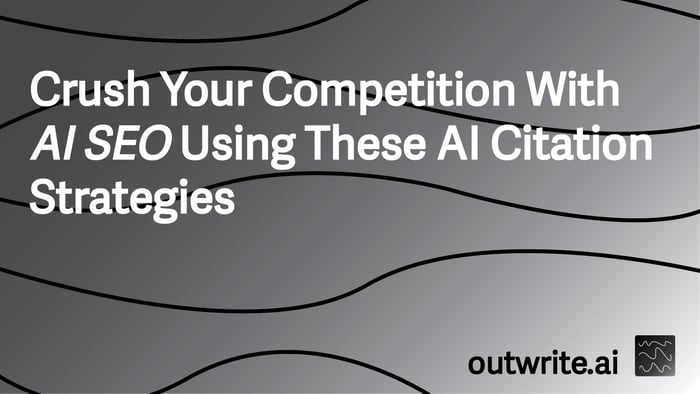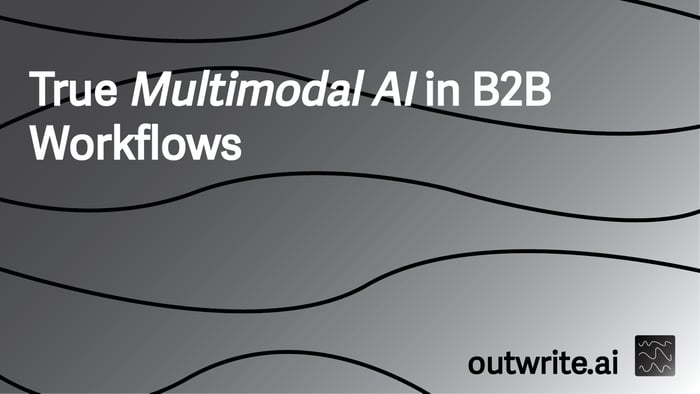Table of Contents
- The AI SEO Revolution: Gaining an Edge
- AI Adoption Trends & Market Impact
- Core AI SEO Strategies for Growth
- Mastering Generative Engine Optimization (GEO)
- Technical SEO Automation with AI Technology
- AI for Content Creation & Optimization
- Building Hybrid AI-Human Workflows
- Case Studies: AI SEO in Action
- The Future of AI SEO: 2026 and Beyond
- Conclusion
- FAQs
The digital landscape is undergoing a profound transformation, driven by the rapid advancements in artificial intelligence. For businesses, particularly small founders, understanding and implementing effective AI SEO strategies is no longer optional—it's a critical pathway to competitive advantage. This guide delves into how AI technology is reshaping search engine optimization, offering actionable insights and proven methods to enhance your digital marketing efforts, secure higher search engine rankings, and build robust content authority.
We'll explore the current market dynamics, delve into core AI SEO strategies, examine real-world case studies, and provide a comprehensive implementation guide. Our focus is on how even small businesses can leverage AI visibility and AI search to grow, emphasizing the increasing importance of these tools as we move into 2026. By integrating AI technology best practices, you can streamline operations, uncover new opportunities, and ensure your brand stands out in an increasingly crowded online world.
The AI SEO Revolution: Gaining an Edge
The integration of AI technology into search engine optimization marks a pivotal moment for digital marketers. This isn't just about incremental improvements; it's about fundamentally rethinking how we approach visibility, content, and user engagement. AI SEO strategies allow businesses to process vast amounts of data, predict trends, and automate tasks that were once time-consuming and resource-intensive, thereby creating a significant competitive advantage.
For small founders, this revolution presents a unique opportunity. With limited budgets and teams, AI technology solutions can democratize access to advanced SEO capabilities, enabling them to compete effectively against larger enterprises. By focusing on AI visibility and optimizing for AI search, these businesses can carve out niches, attract targeted audiences, and build strong online presences without needing extensive manual labor. The shift towards AI-driven search is accelerating, making early adoption a key differentiator.
The core promise of AI SEO lies in its ability to enhance precision and efficiency. From understanding complex user intent to identifying emerging keyword opportunities and optimizing content for various search formats, AI technology provides tools that amplify human expertise. This synergy allows for more strategic decision-making and a proactive approach to maintaining relevance in an ever-evolving search landscape.
As we look towards 2026, the importance of AI SEO will only intensify. Search engines are increasingly incorporating AI into their ranking algorithms, and AI-powered search experiences like Google's AI Overviews are becoming more prevalent. This means that content optimized for AI consumption, with clear citation strategies and high authority, will be paramount for securing top positions and driving organic traffic. Businesses that fail to adapt risk being left behind in the digital dust.
AI Adoption Trends & Market Impact
The adoption of AI technology in SEO is no longer a niche practice; it's a mainstream imperative. Data reveals a significant shift in how SEO professionals are integrating artificial intelligence into their daily workflows and long-term strategies. This widespread adoption underscores AI's proven ability to deliver tangible results and reshape the competitive landscape.

Current State of AI Integration in SEO
- Widespread Integration: A staggering 86% of SEO professionals have now integrated AI into their strategy, demonstrating that AI is a core competency for market leaders, according to SeoProfy. This isn't just experimentation; it's a fundamental shift in operational methodology.
- Increased Investment: Looking ahead, 82% of enterprise SEO specialists plan to increase investment in AI tools and platforms to maintain or gain competitive advantage in 2025, as reported by SeoProfy. This indicates strong confidence in AI's ROI.
- Time Savings: A significant 75% of marketers use AI to reduce the time spent on manual SEO tasks, such as keyword research and meta-tag optimization, according to SeoProfy. This efficiency gain frees up valuable human resources for strategic thinking.
Impact on Performance and Market Dynamics
The benefits of AI technology are not merely theoretical; they are translating into measurable performance improvements. Businesses leveraging AI are seeing significant gains in organic visibility and traffic, solidifying AI's role as a powerful tool for competitive SEO.
Consider these compelling statistics:
- Improved SEO Results: 65% of businesses report improved SEO results due to AI, suggesting a significant competitive edge for early adopters, according to SeoProfy. This directly links AI adoption to better search engine ranking.
- On-Page Performance: 52% of SEO professionals have seen measurable on-page SEO performance improvements after adopting AI tools, as highlighted by SeoProfy. This includes better meta descriptions, content structure, and keyword integration.
- AI Overviews and CTR: While Google still dominates search, AI Overviews are changing how content is consumed. Featured snippets have a clickthrough rate (CTR) of 42.9%, and 75% of users never click past the first page of results, underscoring the need for AI-driven content optimization, as noted by AIOSEO. However, it's crucial to remember that 49% of users still click traditional blue links after seeing an AI-generated answer, and position #1 Google results see a 34.5% lower CTR when AI Overviews are present, according to Digitaloft. This complex dynamic requires a balanced AI SEO approach.
Investment and Growth in Generative AI
The financial world is also taking note, with massive investments pouring into generative AI, signaling its long-term potential and impact on various industries, including digital marketing. This influx of capital fuels further innovation in AI technology solutions.
Key investment trends include:
- Massive Equity Investment: Generative AI attracted $36 billion in equity investment in 2023, a staggering 620% year-over-year increase from $5 billion in 2022, reflecting massive market confidence in the sector, according to Exploding Topics. This capital injection is driving rapid advancements in AI SEO tools.
- ChatGPT's Continued Dominance: ChatGPT continues to lead GenAI growth, with mobile app downloads up nearly 20 million between February and March 2025, as reported by Digitaloft. This highlights the increasing user engagement with AI-powered conversational platforms, which will influence future search behavior.
| Metric | Percentage/Value | Source | Implication for Competitive Advantage |
|---|---|---|---|
| SEO Professionals Using AI | 86% | SeoProfy | AI is a baseline for competitive SEO; non-adopters risk falling behind. |
| Planned Increase in AI Investment (2025) | 82% | SeoProfy | Market leaders are doubling down on AI for future growth. |
| Marketers Using AI for Manual Task Reduction | 75% | SeoProfy | AI drives efficiency, freeing up resources for strategic work. |
| Businesses Reporting Improved SEO Results with AI | 65% | SeoProfy | Clear ROI for AI adoption in search engine ranking. |
| Generative AI Equity Investment (2023) | $36 Billion (620% YoY increase) | Exploding Topics | Massive market confidence and rapid innovation in AI technology. |
Core AI SEO Strategies for Growth
To truly harness the power of AI technology for competitive SEO, businesses must move beyond basic automation and integrate AI into the very fabric of their digital marketing strategies. This involves a multi-faceted approach that leverages AI for data analysis, content creation, technical optimization, and user experience enhancements. The goal is to create a seamless, AI-powered workflow that continuously adapts to search engine changes and user behavior.
Strategic Pillars of AI-Driven SEO
Implementing AI SEO effectively requires focusing on several key strategic areas:
- Data-Driven Keyword Research & Intent Analysis: AI technology excels at processing vast datasets to identify emerging keyword trends, long-tail opportunities, and the underlying user intent behind queries. Tools powered by natural language processing (NLP) can uncover semantic relationships that human analysts might miss, leading to more targeted and effective keyword strategies.
- Automated Content Optimization: From generating meta descriptions and titles to suggesting content structures and identifying gaps in existing content, AI can significantly streamline the content optimization process. This ensures that content is not only relevant but also structured in a way that search engines can easily understand and rank.
- Personalized User Experiences: AI can analyze user behavior patterns to deliver personalized content recommendations, search results, and even dynamic landing page elements. This personalization can dramatically improve engagement, reduce bounce rates, and increase conversion rates, all of which positively impact SEO.
- Proactive Technical SEO Monitoring: AI-powered tools can continuously monitor websites for technical SEO issues such as broken links, crawl errors, duplicate content, and slow page speeds. They can identify these problems in real-time and often suggest or even implement fixes, ensuring a healthy site architecture that search engines favor.

Integrating AI for Enhanced Content Authority
Building content authority is paramount for long-term SEO success, and AI technology can play a crucial role in this. By leveraging AI, businesses can ensure their content is not only high-quality but also strategically positioned to be recognized as authoritative by search engines and AI-powered search experiences.
- Fact-Checking and Accuracy: AI tools can assist in fact-checking content against vast databases, ensuring accuracy and reducing the risk of misinformation. This is critical for establishing trust and authority, especially in sensitive niches.
- Semantic Richness and Depth: AI can analyze top-ranking content for semantic completeness and suggest ways to enrich your own content with related entities, concepts, and questions that users are asking. This helps create comprehensive resources that satisfy user intent more fully.
- Citation Strategy Optimization: With AI Overviews citing multiple sources, a robust citation strategy is more important than ever. AI can help identify authoritative sources to link to, and conversely, identify opportunities for your content to be cited by others, boosting your content authority.
The most successful AI SEO strategies combine the analytical power of AI with human oversight and creativity. This hybrid approach ensures that while AI handles the heavy lifting of data processing and automation, the unique voice, strategic vision, and ethical considerations remain firmly in human hands. This balance is key to achieving sustainable growth and maintaining brand integrity.
Mastering Generative Engine Optimization (GEO)
As AI-powered search experiences become more prevalent, a new paradigm in SEO is emerging: Generative Engine Optimization (GEO). This goes beyond traditional SEO by specifically targeting how content is discovered, synthesized, and presented by AI platforms like Google's Search Generative Experience (SGE) and conversational AI tools like ChatGPT. For small founders, mastering GEO can unlock significant market share and qualified leads that might otherwise be inaccessible.
GEO is about understanding that AI models don't just "read" content; they interpret, summarize, and often generate new answers based on the information they find. This means optimizing for clarity, conciseness, factual accuracy, and the ability for your content to be easily cited and integrated into AI-generated responses. Early GEO adopters are already seeing substantial returns, with some capturing up to 32% of sales-qualified leads directly from AI platforms, as highlighted by Single Grain.
Key Principles of GEO for AI Visibility
- Clarity and Conciseness: AI models prefer information that is easy to understand and synthesize. Use clear headings, bullet points, and direct answers to common questions. Avoid jargon where possible, or clearly define it.
- Factual Accuracy and Authority: AI prioritizes credible, well-sourced information. Ensure your content is factually correct and backed by reputable sources. This builds trust with both human users and AI models.
- Semantic Completeness: Go beyond keywords. AI understands context and semantic relationships. Provide comprehensive answers that cover a topic thoroughly, addressing related entities and concepts.
- Citation Readiness: Structure your content so that key facts, figures, and insights are easily identifiable and citeable. This increases the likelihood of your content being referenced in AI Overviews, which cite an average of 7.7 sources, and these cited URLs are 25.7% “fresher” than those on traditional SERPs, according to Digitaloft.
Practical GEO Implementation Steps
- Optimize for Direct Answers: Identify common questions related to your niche and create dedicated sections or FAQs that provide direct, concise answers. This makes your content prime for featured snippets and AI-generated summaries.
- Enhance Brand Mentions and Authority: Branded web mentions have the greatest correlation with appearance in AI Overviews, as noted by Digitaloft. Proactively build your brand's online presence through consistent messaging, PR, and high-quality content that encourages mentions across the web.
- Focus on Freshness and Relevance: Regularly update your content to ensure it remains current. AI models value fresh information, especially for rapidly evolving topics.
- Measure AI-Driven Conversions: Track how users arriving from AI-generated search results interact with your site. This allows you to refine your GEO strategy and attribute revenue accurately. For example, a smart home technology company saw AI-sourced visitors convert at 27% compared to 2.1% from traditional search, as detailed by Single Grain.
Mastering GEO is not about abandoning traditional SEO but augmenting it. It's about recognizing the evolving nature of search and adapting your content strategy to ensure maximum visibility across all search modalities, both traditional and AI-driven. For small businesses, this proactive approach to AI technology can be a game-changer, allowing them to capture valuable leads and establish themselves as authorities in their respective fields.

Technical SEO Automation with AI Technology
Technical SEO forms the bedrock of any successful online presence, ensuring that search engines can efficiently crawl, index, and understand your website. Historically, this has been a labor-intensive process, requiring meticulous attention to detail. However, AI technology has revolutionized technical SEO, offering powerful automation capabilities that can identify and resolve issues with unprecedented speed and accuracy. For small founders, this means a healthier website, better search engine ranking, and a competitive edge without needing a dedicated in-house technical SEO team.
AI-powered tools can perform continuous audits, pinpointing critical technical flaws that might otherwise go unnoticed. This proactive approach not only prevents potential ranking drops but also optimizes the user experience, which search engines increasingly prioritize. The ability to quickly address issues like page speed, mobile responsiveness, and crawlability is crucial for maintaining strong organic performance.
How AI Enhances Technical SEO
AI technology solutions bring several distinct advantages to technical SEO:
- Automated Site Audits: AI tools can crawl entire websites, identifying issues such as broken links, duplicate content, missing meta tags, and crawl errors. They can do this much faster and more comprehensively than manual audits.
- Page Speed Optimization: AI can analyze website code and server responses to pinpoint bottlenecks affecting page load times. It can suggest specific optimizations, such as image compression, lazy loading, and code minification, or even implement them automatically.
- Schema Markup Generation: Implementing structured data (schema markup) is vital for enhancing how search engines understand your content. AI can generate accurate schema markup for various content types (e.g., articles, products, events), making your site eligible for rich snippets and improving AI visibility.
- Log File Analysis: AI can process vast server log files to understand how search engine bots interact with your site. This reveals crawl patterns, identifies pages being ignored, and helps optimize crawl budget, ensuring important content is discovered.
Implementing FAST Technical SEO Fixes with AI
The ability to identify and resolve technical SEO issues quickly is a significant competitive advantage. AI technology facilitates "FAST" (Fast, Automated, Strategic, Timely) technical SEO fixes:
- Fast Identification: AI continuously monitors your site, immediately flagging new technical issues as they arise, often before they impact rankings.
- Automated Diagnosis and Recommendations: Instead of just reporting an error, AI can often diagnose the root cause and provide specific, actionable recommendations for resolution. For some issues, it can even automate the fix.
- Strategic Prioritization: AI can analyze the potential impact of each technical issue on your search engine ranking and user experience, helping you prioritize fixes that will yield the greatest return.
- Timely Resolution: With automated identification and clear recommendations, your team can implement fixes much more quickly, minimizing downtime and negative SEO impact.
For example, a company using AI to identify and resolve technical SEO issues saw a +26% increase in web traffic by implementing AI-driven A/B testing on SEO elements, as demonstrated by Flight Centre's use of SearchPilot. This highlights how AI technology best practices in technical SEO directly translate to improved performance and growth.
AI for Content Creation & Optimization
Content remains king in SEO, but the scale and quality required to compete are constantly increasing. AI technology has emerged as a powerful ally in content creation and optimization, enabling businesses to produce high-quality, relevant, and engaging content at scale. This is particularly beneficial for small founders who need to establish content authority and drive organic traffic without extensive editorial teams. AI SEO strategies in this domain focus on efficiency, relevance, and semantic depth.
The role of AI isn't to replace human creativity but to augment it. AI tools can handle the data-intensive, repetitive aspects of content generation and optimization, freeing human writers to focus on storytelling, unique insights, and maintaining brand voice. This hybrid approach allows for the creation of content that is both search-engine friendly and genuinely valuable to the audience.
AI-Powered Content Generation and Enhancement
- Keyword-Rich Content Outlines: AI can analyze top-ranking content for a given keyword, identify common themes, subtopics, and questions, and then generate comprehensive content outlines. This ensures your content covers all essential aspects and satisfies user intent.
- Automated Meta Descriptions and Titles: AI can craft compelling and keyword-optimized meta descriptions and titles that improve click-through rates (CTR) from the SERPs. This is a critical element for attracting users to your content.
- Content Expansion and Rephrasing: For existing content, AI can suggest ways to expand sections, rephrase sentences for clarity, or add new information to improve its comprehensiveness and freshness. This is especially useful for updating evergreen content.
- Grammar, Style, and Readability Checks: AI-powered writing assistants can proofread content for grammatical errors, improve sentence structure, and ensure readability, making your content more professional and engaging.
Optimizing for AI Search and Long-Form Content
With the rise of AI Overviews and the increasing preference for in-depth content, AI technology is crucial for optimizing content for the future of search. Content over 3,000 words earns 3x more traffic, 4x more shares, and 3.5x more backlinks than average-length content, as noted by AIOSEO. AI helps scale the production of such valuable, long-form content.
- Semantic SEO and Entity Optimization: AI helps identify and integrate relevant entities and concepts into your content, moving beyond simple keyword matching to create semantically rich articles that AI models can better understand and categorize.
- Question-Answering Format: Structure your content to directly answer common questions. Use clear headings, bulleted lists, and concise paragraphs that are easy for AI to extract and use in generative responses.
- Content Freshness and Updates: AI can monitor content performance and suggest when articles need updating to maintain relevance and freshness, a key factor for AI-driven search.
- Personalized Content Delivery: AI can analyze user behavior to recommend the most relevant content, improving engagement and time on site, which are positive signals for search engines.

Building Hybrid AI-Human Workflows
The most effective AI SEO strategies are not about replacing humans with machines, but rather about creating powerful hybrid workflows where AI technology amplifies human expertise. This synergistic approach allows businesses to leverage AI for its unparalleled data processing capabilities and automation, while retaining human creativity, strategic thinking, and ethical oversight. For competitive advantage, especially for small founders, this balance is crucial for sustainable growth and maintaining a unique brand identity.
As a digital lead from Rocky Brands noted regarding their AI SEO implementation, “The right combination of AI tools allows teams to focus on strategic priorities rather than manual analysis... technology amplifies human expertise when deployed cohesively,” as cited by AI News Era. This perfectly encapsulates the essence of a successful hybrid model.
Optimizing Human-AI Collaboration
Creating effective hybrid workflows involves clearly defining roles and leveraging the strengths of both AI and human intelligence:
- AI for Data Analysis & Automation:
- Keyword Research: AI identifies high-potential keywords, analyzes competitor strategies, and uncovers semantic gaps.
- Content Generation (Drafts & Outlines): AI creates initial content drafts, outlines, meta descriptions, and titles, saving significant time.
- Technical Audits: AI continuously monitors for technical SEO issues, providing real-time alerts and recommendations.
- Performance Monitoring: AI tracks rankings, traffic, and user engagement, highlighting trends and anomalies.
- Humans for Strategy & Creativity:
- Strategic Direction: Humans define overall SEO goals, target audiences, and brand messaging.
- Content Refinement: Writers infuse AI-generated content with unique voice, storytelling, and expert insights.
- Ethical Oversight: Humans ensure AI outputs align with brand values, accuracy, and ethical guidelines.
- Complex Problem Solving: Humans interpret nuanced data, adapt to unexpected changes, and develop innovative solutions that AI cannot.
Benefits of a Hybrid Approach
The integration of AI technology into human workflows yields a multitude of benefits, driving both efficiency and effectiveness:
- Increased Efficiency: Automating repetitive tasks with AI frees up human teams to focus on higher-value activities, leading to greater productivity and faster campaign execution.
- Enhanced Accuracy: AI can process and analyze data with a level of precision that is difficult for humans to match, reducing errors in keyword research, technical audits, and content optimization.
- Improved Scalability: Businesses can scale their SEO efforts more effectively, producing more content, conducting more analyses, and monitoring more data points without proportionally increasing headcount.
- Deeper Insights: AI can uncover patterns and correlations in data that might be invisible to human analysts, leading to more profound insights and more effective strategies.
- Sustainable Competitive Advantage: By combining the best of both worlds, businesses can achieve sustainable growth, adapt quickly to market changes, and maintain a strong, authentic brand presence.
Companies integrating AI-driven SEO demonstrate 35-75% improvements in organic visibility within six months, combining automation with human oversight for sustainable growth, according to AI News Era. This clearly illustrates the power of hybrid AI-human workflows in achieving superior search engine ranking and content authority.
Case Studies: AI SEO in Action
The theoretical benefits of AI SEO strategies are compelling, but real-world examples truly underscore their transformative power. These case studies demonstrate how diverse companies, from e-commerce brands to media firms, have leveraged AI technology to achieve significant improvements in organic traffic, revenue, and lead generation. They serve as powerful testaments to the competitive advantage that AI SEO offers, especially for businesses looking to scale their digital marketing efforts.
These examples highlight various AI technology best practices, from automated keyword discovery to Generative Engine Optimization (GEO), showcasing the versatility and impact of AI solutions across different industries. They also emphasize the importance of a hybrid AI-human approach, where technology augments, rather than replaces, human expertise.
Real-World Success Stories
Let's look at how different companies have implemented AI SEO strategies:
- Rocky Brands: This company utilized AI for keyword discovery and automated on-page SEO enhancements. Their strategy led to a remarkable +30% search revenue growth, a 74% YoY revenue increase, and a +13% increase in new visitors. They achieved this by using platforms like BrightEdge for keyword and meta tag optimization, coupled with real-time data monitoring to refine internal links and maintain brand voice, as reported by Exploding Topics and AI News Era.
- Mid-sized E-commerce in Home Goods: This business employed machine learning for search trend and user behavior analysis, alongside AI-powered personalized meta descriptions. The result was a +40% organic traffic increase within six months, along with improved rankings and conversion rates. Their success stemmed from automated keyword identification and content optimization, overcoming initial challenges by aligning AI output with their brand voice and fostering cross-departmental collaboration, as detailed by SeoProfy.
- Smart Home Technology Company: By focusing on Generative Engine Optimization (GEO) and a content strategy designed to dominate AI search engines, this company achieved a +32% increase in qualified leads. Crucially, AI-sourced visitors converted at an impressive 27%, significantly higher than the 2.1% from traditional search. Their systematic GEO tactics included measuring citation frequency, recommendation quality, conversion rates from AI, and revenue attribution, according to Single Grain.
- Xponent21: This company achieved an astonishing +4162% traffic growth in under a year by combining multiple AI ranking platforms. Their strategy led to top rankings on Perplexity, ChatGPT, and Google AI Mode, showcasing the immense potential of a multi-platform AI SEO approach, as highlighted by Xponent21.

Lessons Learned from AI SEO Successes
These case studies offer valuable insights for any business looking to implement AI SEO strategies:
- Strategic Tool Selection: The choice of AI tools matters. Companies like Rocky Brands used BrightEdge, while others leveraged Surfer SEO or SearchPilot, demonstrating that the right AI technology solutions are tailored to specific needs.
- Hybrid Approach is Key: In every successful case, AI automated repetitive tasks, but human oversight ensured brand voice, strategic alignment, and creative input. This hybrid model is consistently more effective than pure automation.
- Focus on Measurable Outcomes: Success metrics like search revenue growth, organic traffic increase, and qualified lead generation were meticulously tracked, proving the ROI of AI SEO investments.
- Adapt to AI Search: The Smart Home Technology Company's success with GEO underscores the importance of optimizing specifically for AI-driven search experiences, not just traditional SERPs.
These examples provide a clear roadmap for how businesses can leverage AI technology to gain a significant competitive advantage in SEO, driving measurable results and future-proofing their digital presence. The consistent theme is that AI is not just a trend but a powerful, results-driven component of modern digital marketing.
The Future of AI SEO: 2026 and Beyond
As we stand on the cusp of 2026, the trajectory of AI SEO is clear: it will become even more integral to digital marketing success. The rapid evolution of AI technology, coupled with its increasing adoption by search engines, means that businesses must continuously adapt their strategies to maintain and grow their online visibility. For small founders, understanding these future trends is paramount to sustaining a competitive advantage and ensuring their AI visibility continues to drive growth.
The landscape of search is shifting from mere information retrieval to intelligent answer generation. This transition demands a more sophisticated approach to content creation, technical optimization, and user engagement, all powered by advanced AI technology. The winners in this new era will be those who embrace these changes proactively.
Key Trends Shaping AI SEO in 2026
- Hyper-Personalization of Search Results: AI will enable search engines to deliver increasingly personalized results based on individual user behavior, location, and intent. SEO strategies will need to focus on creating highly relevant content that caters to specific micro-segments of the audience.
- Dominance of Generative AI in Search: Google's AI Overviews and similar generative AI features will become more pervasive. Optimizing for these AI-generated answers, focusing on citation strategies and content authority, will be critical for securing top-of-funnel visibility.
- Voice and Conversational Search Optimization: As voice assistants and conversational AI become more sophisticated, SEO will need to adapt to natural language queries. This involves optimizing for long-tail keywords, question-based content, and direct answers.
- Advanced Predictive Analytics: AI technology will offer more sophisticated predictive capabilities, allowing SEO professionals to anticipate future search trends, algorithm changes, and user needs, enabling proactive strategy adjustments.
- Ethical AI and Trust Signals: With the rise of AI-generated content, trust and authenticity will become even more valuable. SEO will need to emphasize E-E-A-T (Experience, Expertise, Authoritativeness, Trustworthiness) signals, ensuring content is not only AI-optimized but also genuinely credible.
Strategies for Small Founders in the AI-First Era
For small founders, the future of AI SEO presents both challenges and immense opportunities. By focusing on smart AI technology strategies, they can level the playing field:
- Lean AI Tool Adoption: Invest in cost-effective AI SEO tools that automate core tasks like keyword research, content outlining, and technical audits. This allows for maximum impact with minimal expenditure.
- Niche Authority Building: Use AI to identify underserved niches and create highly authoritative, in-depth content that establishes your brand as a go-to resource. This is crucial for gaining AI visibility in specialized areas.
- Focus on User Experience (UX): AI-powered analytics can help optimize website UX, ensuring fast loading times, intuitive navigation, and mobile responsiveness. A superior UX is a strong ranking factor for both traditional and AI search.
- Hybrid Content Creation: Leverage AI for generating content drafts and ideas, but always infuse human creativity, unique perspectives, and brand storytelling. This ensures content is both optimized and authentic.
- Continuous Learning and Adaptation: The AI landscape is dynamic. Small founders must stay informed about the latest AI technology trends and be prepared to adapt their SEO strategies accordingly.
The most successful SEO teams in 2025 will combine AI automation with original, expert-led content and always-on technical optimization, as emphasized by Conductor. This blend of AI technology solutions and human ingenuity will be the cornerstone of competitive SEO in the years to come, enabling small founders to not just survive, but thrive, in an AI-first search environment.
Conclusion
The integration of AI technology into SEO is not merely an incremental change; it represents a fundamental shift in how businesses achieve and maintain competitive advantage in the digital realm. From automating tedious tasks and uncovering deeper insights to optimizing for emerging AI-powered search experiences, AI SEO strategies are proving to be indispensable. For small founders, this revolution offers an unprecedented opportunity to level the playing field, gain significant AI visibility, and drive growth with efficiency and precision.
As we move into 2026, the importance of optimizing for AI search and building robust content authority will only intensify. The statistics are clear: early adopters of AI technology are already reporting substantial improvements in organic traffic, revenue, and lead generation. By embracing hybrid AI-human workflows, focusing on Generative Engine Optimization, and continuously adapting to the evolving landscape of AI technology trends, businesses can secure their position at the forefront of digital marketing. The future of SEO is intelligent, and those who harness the power of AI will be the ones to thrive.
By Aidan Buckley — Published October 24, 2025





